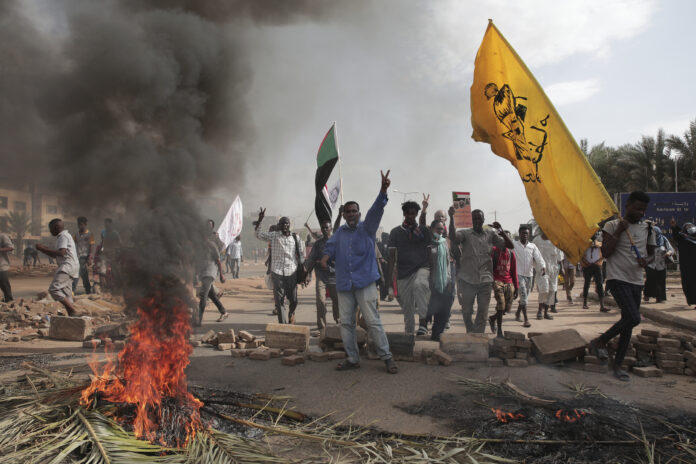Two days of tribal fighting in Sudan’s south killed at least 220 people, a senior health official said Sunday, marking one the deadliest bouts of tribal violence in recent years. The unrest added to the woes of an African nation mired in civil conflict and political chaos.
Fighting in Blue Nile province, which borders Ethiopia and South Sudan, reignited earlier this month over a land dispute. It pits the Hausa tribe, with origins across West Africa, against the Berta people.
The tensions escalated Wednesday and Thursday in the town of Wad el-Mahi on the border with Ethiopia, according to Fath Arrahman Bakheit, the director general of the Health Ministry in Blue Nile.
He told The Associated Press that officials counted at least 220 dead as of Saturday night, adding the tally could be much higher since medical teams were not able to reach the epicenter of the fighting.
Bakheit said the first humanitarian and medical convoy managed to reach Was el-Mahi late Saturday to try to assess the situation, including counting “this huge number of bodies,” and the dozens of injured.
“In such clashes, everyone loses,” he said. “We hope it ends soon and never happens again. But we need strong political, security and civil interventions to achieve that goal.”
Footage from the scene, which corresponded to the AP’s reporting, showed burned houses and charred bodies. Others showed women and children fleeing on foot.
1:44
Sudan’s PM Hamdok steps down after failing to restore civilian government
Many houses were burned down in the fighting, which displaced some 7,000 people to the city of Rusyaris. Others fled to neighboring provinces, according to the UN Office for the Coordination of Humanitarian Affairs. Overall, about 211,000 people have been displaced by tribal violence and other attacks across the country this year, it said.
Trending Now
Is it cold, COVID or the flu? Experts say its ‘very difficult’ to differentiate
Are COVID rapid tests still reliable with new sub-variants on the rise? What experts say
Authorities ordered a nighttime curfew in Wad el-Mahi and deployed troops to the area. They also established a fact-finding committee to investigate the clashes, according to the state-run SUNA news agency.
Angry protesters on Sunday took to the streets of Damazin, the provincial capital Blue Nile, to denounce the tribal violence and the government’s response to the clashes, local media reported. Some protesters stormed the headquarters of the local government. Footage shared online show plumes of smoke rising from the building. The online news website, Monte Carro, reported that protesters also stormed a military facility in Damazin. There were no immediate reports of casualties.
The fighting between the two groups first erupted in mid-July, killing at least 149 people as of earlier October. It triggered violent protests and stoked tensions between the two tribes in Blue Nile and other provinces.
0:31
Sudan’s PM reinstated following deal with military
The latest fighting comes at a critical time for Sudan, just a few days before the first anniversary of a military coup that further plunged the country into turmoil. It triggered nearly weekly anti-coup protests in the capital of Khartoum and elsewhere across the country.
Since the coup in October 2021, at least 118 people have been killed in a heavy crackdown on protests, including one protester who was shot dead when security forces violently dispersed a demonstration Sunday in Khartoum, according to the Sudan Doctors Committee, which is part of the pro-democracy movement.
The military’s takeover derailed the country’s short-lived transition to democracy after nearly three decades of the repressive rule of Omar al-Bashir, who was removed in April 2019 by a popular uprising.
In recent weeks the military and the pro-democracy movement have engaged in talks to find a way out of the ongoing situation. The generals agreed to allow civilians to appoint a prime minister to lead the country through elections within 24 months, the pro-democracy movement said last week.
However, the violence in Blue Nile is likely to slow down such efforts. Protest groups, who reject the deal with the ruling generals, have been preparing for mass anti-military demonstrations called for Tuesday, the anniversary of the coup.
© 2022 The Canadian Press



